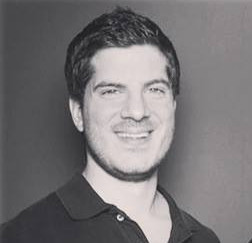In my last post, I mentioned how I’ve always primarily worked with male clients. Yet I’ve also found immense success with women, especially women with a specific problem: those who feel like they’ve never achieved enough, have yet to prove their worth, and who feel like they’re chronically not “enough.”
These women are some of my most successful clients. They thrive in our work together, make serious transformations, and put serious work and effort into positive change. While men will likely always make up the majority of my client load, men and women alike are increasingly struggling with the same issues.
A change in time
Historically—at least in the United States—men have been judged for what they do while women have been judged for what they are. Men have risen in rank and status by becoming rich and getting better jobs, while women have risen by fitting a social standard of beauty.
Times have changed. As men experience higher body dysmorphia and are concerned about how others judge their bodies, young women increasingly judge themselves by their accomplishments and work status. They repeat the same concerns as my male clients: I haven’t achieved enough, I’m too far behind and don’t know what I’m doing with my life, I have to prove myself and my value, etc.
This is part of the reason that I stopped focusing my entire work on men. This feeling of not feeling “enough” and believing we’re all behind isn’t a gendered issue. It’s a societal one. We are producing entire generations who are overly self-critical, put crippling pressure on themselves, and collapse under their belief that they have to achieve perfection right now.
How did we get here?
Why do so many feel like they’re chronically “not enough” no matter how much they achieve? And, more importantly, what techniques best help people break out of this? I’ve written a book on this. Tentatively titled Enough, it’s in its final editing phase and hopefully will be published in the not-too-distant future. But until that comes occurs, we can make a few broad statements.
In my experience, this feeling of never being enough—what I refer to as “anxious insecurity”—draws from three key sources:
Early Life Relationships
The vast majority of people I’ve worked with experienced poor relationships in their early life. This can vary wildly in type and scope. It encompasses everything from challenging relationships with our parents and early caregivers to being raised in strict religious environments where we were trained to adopt shame, guilt, and view ourselves as inherently broken and “unclean.”
Economic Pressure & Societal Influence
If early life relationships are the spark of this problem, economic pressures and societal influence is the gasoline poured on top. The United States is unique in how hyper competitive and individualistic we are. While humans are built to compete in groups, we now feel entirely alone in our battles. If we have nobody to trust but ourselves, how can we possibly accept imperfection in ourselves? We have to be self-critical and self-absorbed. Constantly assessing our flaws and trying to correct them is the only way to stay safe in a competitive yet isolated world.
The hyper individualistic nature of our culture doesn’t help. Advertisers have flooded our lives and have become far more aggressive in generating insecurity than ever before. Politicians, news outlets, and especially social media and Big Tech all play their role as well. Insecurity is a multi-billion dollar industry. The more these organizations can make us feel weak and afraid, the easier it is for them to profit off our emotions and manipulate us for their private gain. These companies include our neighbors and fellow countrymen. Yet they’d willingly sacrifice our mental and emotional health to turn a dollar.
Evolutionary Programming
While all these external influences help generate an environment for insecurity, our own self-judgment generates the bulk of the problem. Most clients report that 90 to 95% of the criticism they face comes entirely from themselves. They don’t need anyone whipping their backs or criticizing them; they’re more than capable on their own. This is normal. For example, if we grow up believing we’re in a hyper-competitive environment where everyone is judging us and we have to show excellence in order to have value and worth—as many young Americans do—becoming self-critical is a great strategy to stay safe. As one client put it, “If I am my harshest critic and can meet my own standards, nobody will have reason to reject me.” Many clients use excessive self-criticism to be motivated, pursue excellence, and push themselves forward. Others use self-criticism and self-doubt to silence their voice and hide when they’re unsure of how others would respond. Our mind is constantly doing what it can to keep us safe. While these fear-based drives may be frustrating, they are understandable.
How do we break out of anxious insecurity?
Whether it’s a man or woman, the problem of anxious insecurity is solved in the same way: by generating a healthy, powerful, and resilient relationship with ourselves.
Insecurity is a relationship problem. Because we feel insecure in the way we see and judge ourselves, we feel insecure about the way others see and judge us. This why even though insecure people long for intimacy and belonging, they often remain closed off or nervous in social situations. They want to connect, but there’s no confidence or faith that others will assess them positively.
Every client is unique and requires their own personalized approach to this problem. But by drawing from modalities such as self-compassion, mindfulness meditation, emotional skills training, Internal Family Systems and more, individuals can transform the relationship they have with themselves—which drastically changes their external relationships as well.
Virtually every client I work with sees their external relationships change during our work or shortly thereafter. Individuals who we insecure and closed off build friendships, jump back into the dating world, improve the relationship they have with their spouse, and become more open to the world around them. They don’t need everyone to love them; they can cultivate a critical mass of self-belonging from within. While they may want acceptance from others—they are still human, after all—they don’t need it. This makes them free.
They’re not striving anymore and have nothing to prove. Energy can be spent honoring their truth and pursuing authentic lives instead of chasing after external validation. They, by themselves, are enough.




